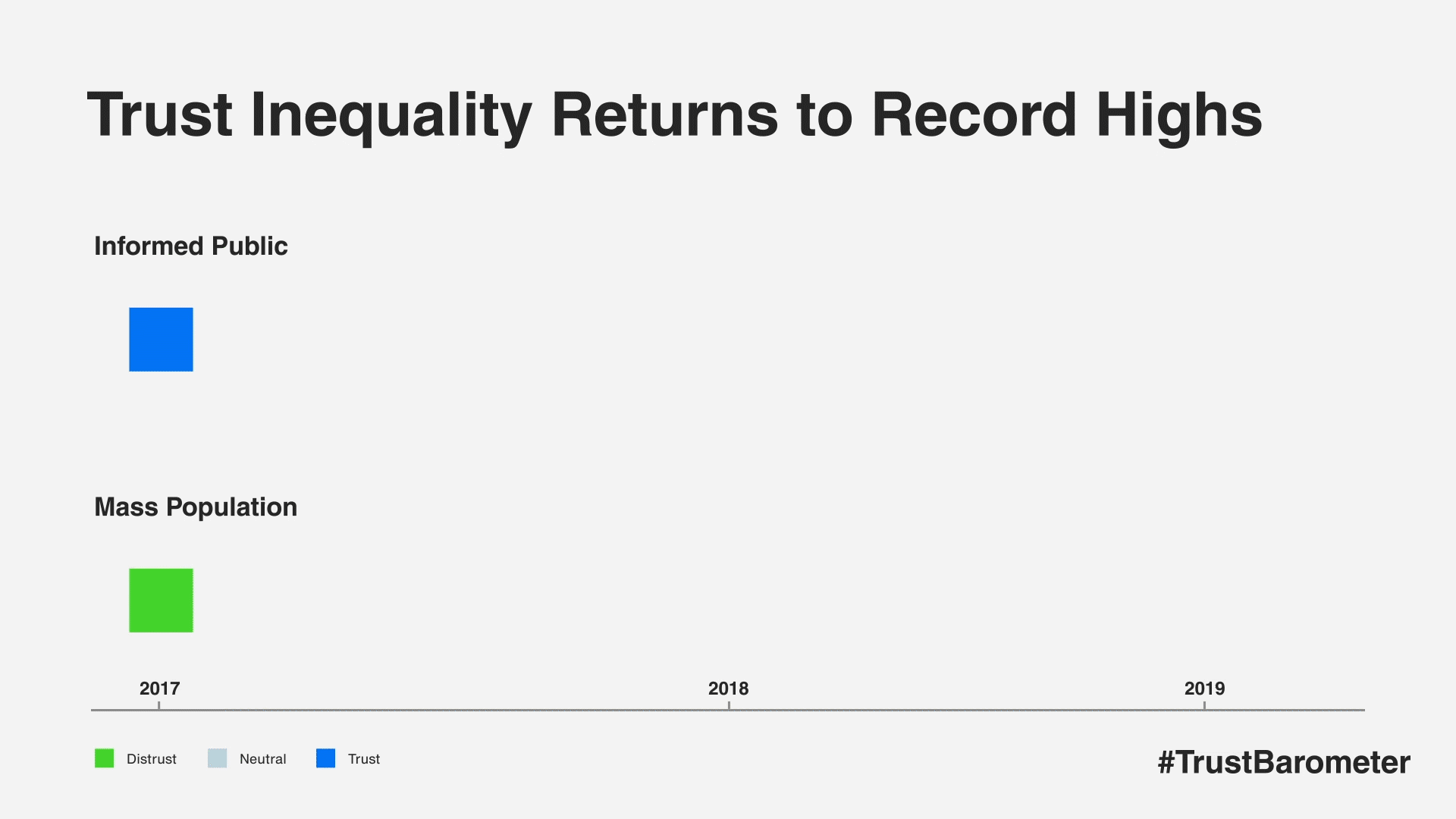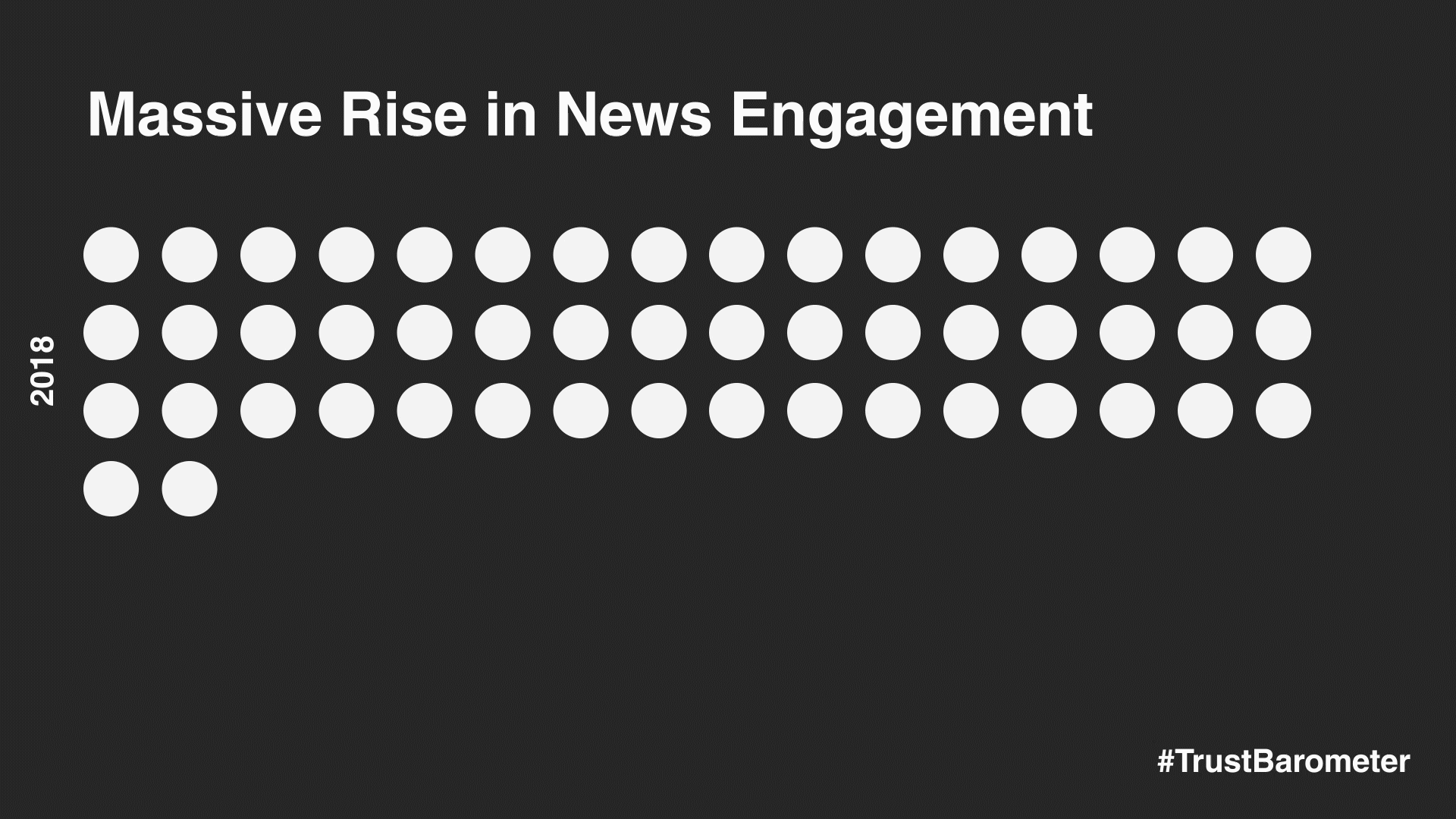Latest Edelman Trust Report: 2024 Edelman Trust Barometer
The 2019 Edelman Trust Barometer reveals that trust has changed profoundly in the past year—people have shifted their trust to the relationships within their control, most notably their employers. Globally, 75 percent of people trust “my employer” to do what is right, significantly more than NGOs (57 percent), business (56 percent) and media (47 percent).
DOWNLOAD REPORT TOP 10 FINDINGS
Divided by Trust
There is a 16-point gap between the more trusting informed public and the far-more-skeptical mass population, marking a return to record highs of trust inequality. The phenomenon fueling this divide was a pronounced rise in trust among the informed public. Markets such as the U.S., UK, Canada, South Korea and Hong Kong saw trust gains of 12 points or more among the informed public. In 18 markets, there is now a double-digit trust gap between the informed public and the mass population.

An Urgent Desire for Change
Despite the divergence in trust between the informed public and mass population the world is united on one front—all share an urgent desire for change. Only one in five feels that the system is working for them, with nearly half of the mass population believing that the system is failing them.
In conjunction with pessimism and worry, there is a growing move toward engagement and action. In 2019, engagement with the news surged by 22 points; 40 percent not only consume news once a week or more, but they also routinely amplify it. But people are encountering roadblocks in their quest for facts, with 73 percent worried about fake news being used as a weapon.

The New Employer-Employee Contract
Despite a high lack of faith in the system, there is one relationship that remains strong: “my employer.” Fifty-eight percent of general population employees say they look to their employer to be a trustworthy source of information about contentious societal issues.
Employees are ready and willing to trust their employers, but the trust must be earned through more than “business as usual.” Employees’ expectation that prospective employers will join them in taking action on societal issues (67 percent) is nearly as high as their expectations of personal empowerment (74 percent) and job opportunity (80 percent).
The rewards of meeting these expectations and building trust are great. Employees who have trust in their employer are far more likely to engage in beneficial actions on their behalf—they will advocate for the organization (a 39-point trust advantage), are more engaged (33 points), and remain far more loyal (38 points) and committed (31 points) than their more skeptical counterparts.
In addition, 71 percent of employees believe it’s critically important for “my CEO” to respond to challenging times. More than three-quarters (76 percent) of the general population concur—they say they want CEOs to take the lead on change instead of waiting for government to impose it.




